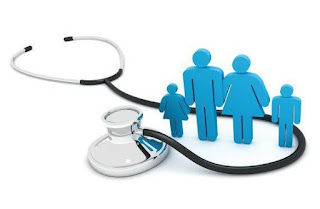The practice of family medicine centers on providing comprehensive, lasting medical care for a diverse group of patients. Family physicians serve patients of all ages and often care for a patient throughout her or his entire life. A family physician has to be trained to deal with all manner of injury and illness to any of the body systems, which requires extensive medical training. The foundation
of training for a family physician is the family medicine residency program.
Physicians Are Trained Through a Family Medicine Residency
All physicians have to undergo rigorous training to become family medicine practitioners. Primary care providers like family physicians play an important role in upholding and protecting the health of a society. They have to be able to combine their knowledge and skills in many areas of medicine to practice effectively; this can include drawing on their knowledge and training in the biological, clinical and behavioral sciences.
The biological, clinical and behavioral sciences will all be components of an intensive and rewarding Franklin family medicine residency. Medical students participating in such a residency will get hands-on training in order to build their knowledge of and familiarity with the skills and processes which comprise family medicine. The Society of Teachers of Family Medicine describes the road to becoming a family physician in this way: “[f]amily physicians in the United States must hold either a Doctor of Medicine (MD) or a Doctor of Osteopathic Medicine (DO). The training process begins with college, followed by medical school (typically a four-year program), and continues with a residency.”
If you want to become a versatile, skilled doctor that serves entire families throughout their lifespan and is invaluable to their community, you may want to pursue a residency in family medicine and become a family physician. As an American medical student you can attend one of the excellent medical schools in the US. As you approach the end of your residency, you can then apply for your license and sit for the board examination by the American Board of Family Medicine. While the process does take years to complete, it is rewarding knowing how hard you have worked to help others.

